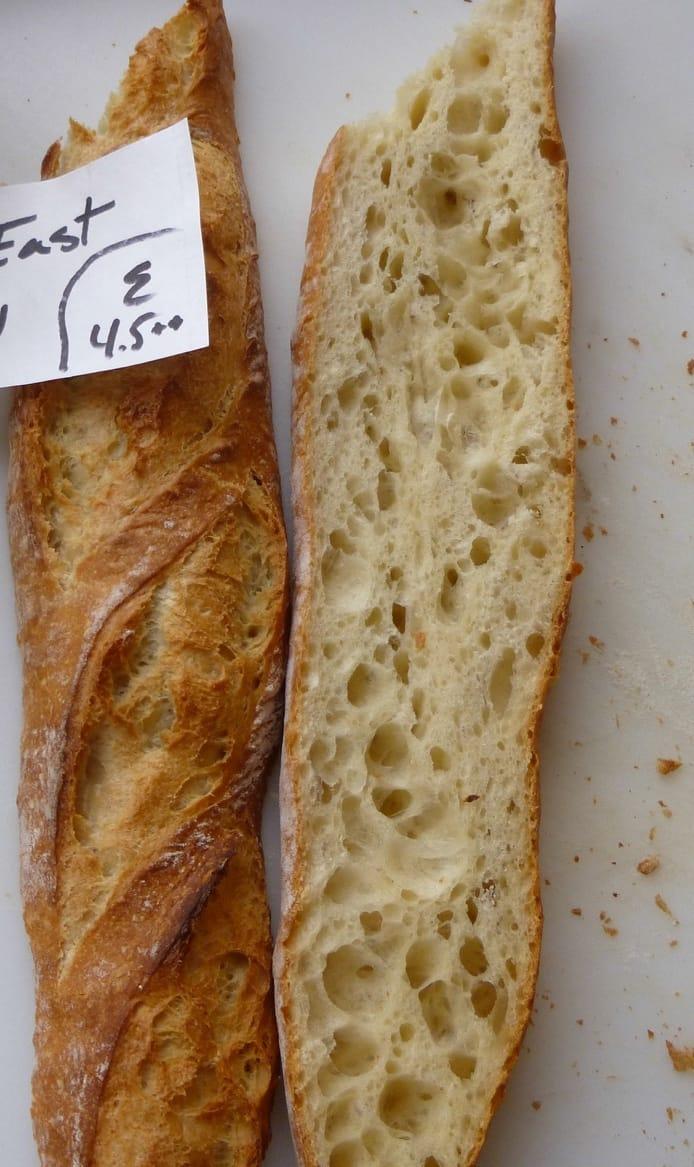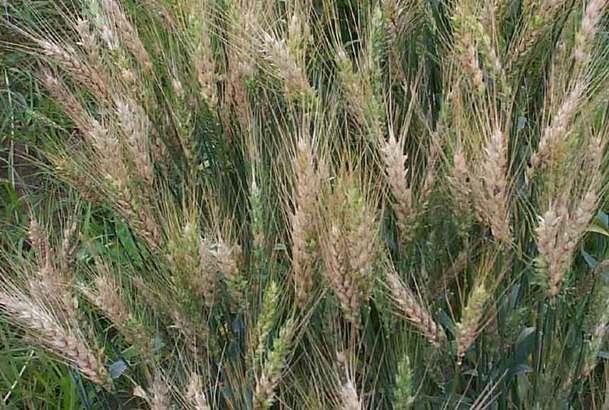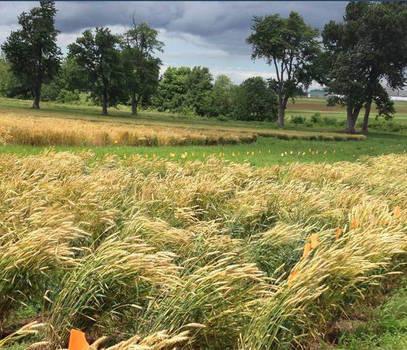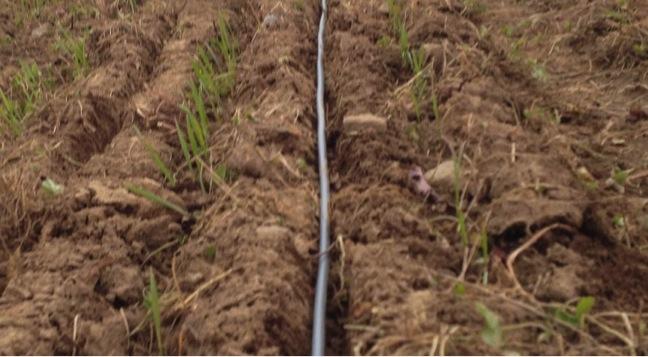Research Projects
Research Projects
Locally Sourced Bread Wheat
 The UK Wheat Breeding Team has been working with a local baker to see if it is possible to produce bread wheat in central KY in an economically sustainable manner. Our high rainfall environment produces high yields, but the protein levels in our soft red winter wheat (good for cookies, crackers, cakes) are not high enough to make a good loaf of bread.
The UK Wheat Breeding Team has been working with a local baker to see if it is possible to produce bread wheat in central KY in an economically sustainable manner. Our high rainfall environment produces high yields, but the protein levels in our soft red winter wheat (good for cookies, crackers, cakes) are not high enough to make a good loaf of bread.
There are two tracks to the study: 1) a pilot study involving the baker, a local farmer and a local miller; and 2) a graduate student study in which we are evaluating modern and heirloom varieties under conventional nitrogen management and heritage managment. Results to date support cautious optimism for our goal, but more data and more years of central KY's rainfall are required. Taste tests of baguettes baked from modern and heirloom varieties have been done and more information will be available soon. Stay tuned!
Fusarium Head Blight (FHB)
Fusarium Head Blight (FHB), or head scab, is a devastating disease of wheat worldwide. In addition to reducing yield, test weight and grain quality, the causal fungus, Fusarium graminearum produces a toxin, deoxynivalenol (DON) upon infection. The toxin results in discounts for farmers and is a food safety threat that affects the milling and baking industries. Our FHB resistance breeding effort is funded by the US Wheat and Barley Scab Initiative (scabusa.org) and the Kentucky Small Grain Growers Association (kysmallgrains.org).
Data from our scab nursery can be found at:
WYT Variety Scab Ratings 2017-2019 2019 KY Scab Data 2018 KY Scab Data 2017 KY Scab Data 2016 KY Scab Data
Nitrogen Use Efficiency (NUE)
By understanding the genetic basis of N utilization we hope to breed varieties that can achieve high grain yields with lower levels of fertilizer nitrogen. Through association mapping of N use traits we hope to identify lines that can be used as parents that will transmit NUE to progeny. Our work to date has been funded by USDA-NIFA-AFRI as collaborators in the TCAP project (http://www.triticeaecap.org/)
Adaptation to Climate Change
We are conducting active warming studies, using buried heating cables, to identify genotypes that respond positively to a warmer rhizosphere. We are also imposing a passive warming treatment to warm the canopy by trapping heat at night.



